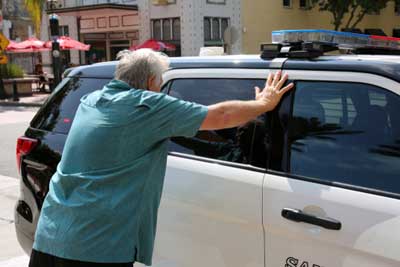Following a DUI arrest, you may be wondering what the next step is in the process. When you don’t know what to expect at your DUI hearing it can be very daunting. At this point, you have been released from a short stay in jail, probably overnight, and you are free to leave.
The Trial Process Comes Next
The reason why we refer it to as a process is that you will likely be in court more than once. At your first court date, you will not be provided any information on any evidence that might imply guilt or what the state has to use against you. The trial process is your opportunity to minimize the financial and criminal penalties of a DUI or prove your innocence.

The Arraignment
Your first court is referred to as the arraignment. You can expect that it will likely take place the day or a few days after you are released from jail, although it could be as long as one month later.
You will be charged officially with a crime at the arraignment. It is the first step in the overall process. The major purpose of the appearance is to make sure that the court has your correct identity. The judge will confirm your date of birth, the spelling of your name, and tell you when your next court date is.
If you make the decision to show up for your arraignment, you will go inside the courtroom and then wait for them to call your name. Once your name is called, your Portland DUI lawyer (if you have one representing you) approaches the bench and is given a copy of your charges.
At that point, either your attorney or you will enter a plea of “no contest,” “not guilty,” or “guilty.” If you plead “not guilty” you will be assigned a new court date along with the District Attorney.
Is It Mandatory To Attend The Arraignment?
You are required to attend your arraignment unless you are informed otherwise by your DUI attorney. Failing to make an appearance can result in a warrant being issued for your arrest by the court. Your DUI attorney in some cases might be able to appear on your behalf or get the arraignment canceled, but you must either have representation or be present. Other you might be faced with further criminal charges and penalties.
The Discovery Process
Following the arraignment, your DUI lawyer will ask for a copy of all of the evidence that is against you. This process is referred to as “Discovery.” These discovery documents include any notes from any field sobriety tests you took (if you did, and hopefully you did not), breathalyzer or lab test results, and the police report.
After a qualified DUI lawyer has reviewed all the evidence, he or she will be able to determine whether or not the correct procedures were followed by the police, whether your rights were violated or respected, and what the best options are for you to move forward with your case.
Preliminary Hearing
After pleading “not guilty,” which is usually the best action to take, your next court date is the preliminary hearing. The state prosecutor will have the burden of convincing the judge that there is probably evidence of finding you guilty of a DUI charge. The case will be dismissed if the state is unable to supply enough evidence.
Trial
If your case gets that far, there is a trial, which includes opening statements, witness testimony, and closing arguments.
Tips For Appearing In Court
Although you might not be experienced with court proceedings, the judge definitely is, and she or he might be influenced by your appearance and behavior in the courtroom. It is critical that you present yourself in court as an upstanding citizen in order to make a favorable impression with the judge.
How To Dress
Men should wear a neatly pressed and clean suit along with footwear that is well-maintained. If you do not own a suit, a button-down professional shirt, tie, and slacks will be sufficient.
Women can wear either a blouse and dress pants or a suit. A conservative-length skirt is acceptable as well.
What Not To Do:
– Do not bring any drink or food inside the court. That includes gum.
– Do not be late. BE sure to arrive early or on time.
– Do not be disrespectful. The judge should be addressed as “Your Honor,” and when speaking you should maintain an even and polite tone.
– Do not argue. Judges have heard every argument and excuse dozens, or hundreds, of times. Stick with the facts of your specific case.
Do you need assistance with your DUI case? Contact Trilogy Law Group today.




